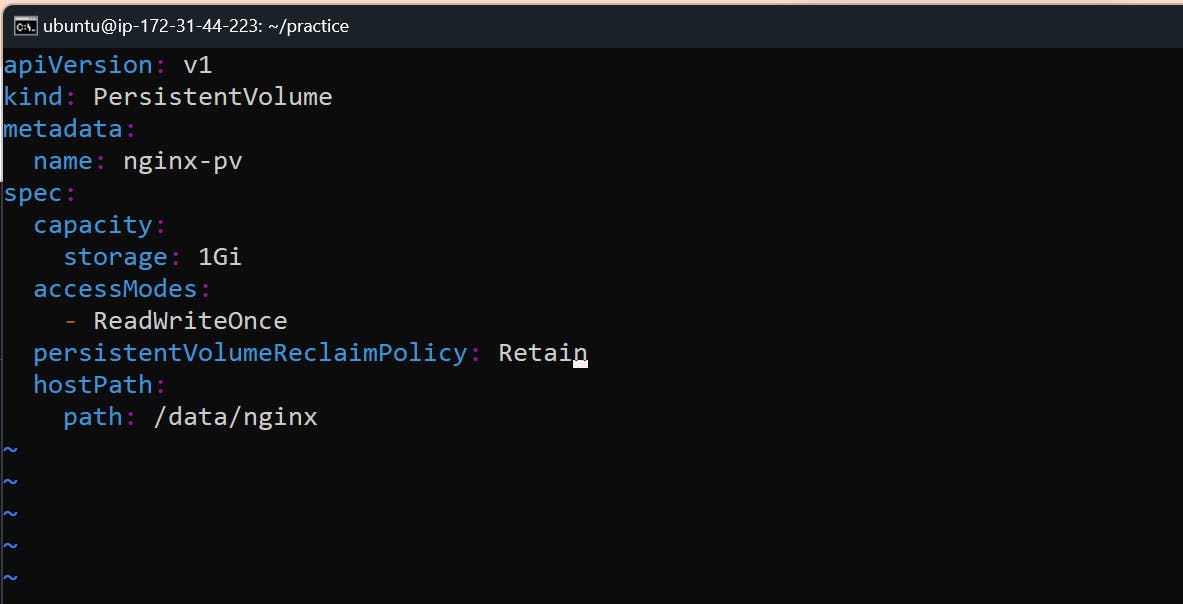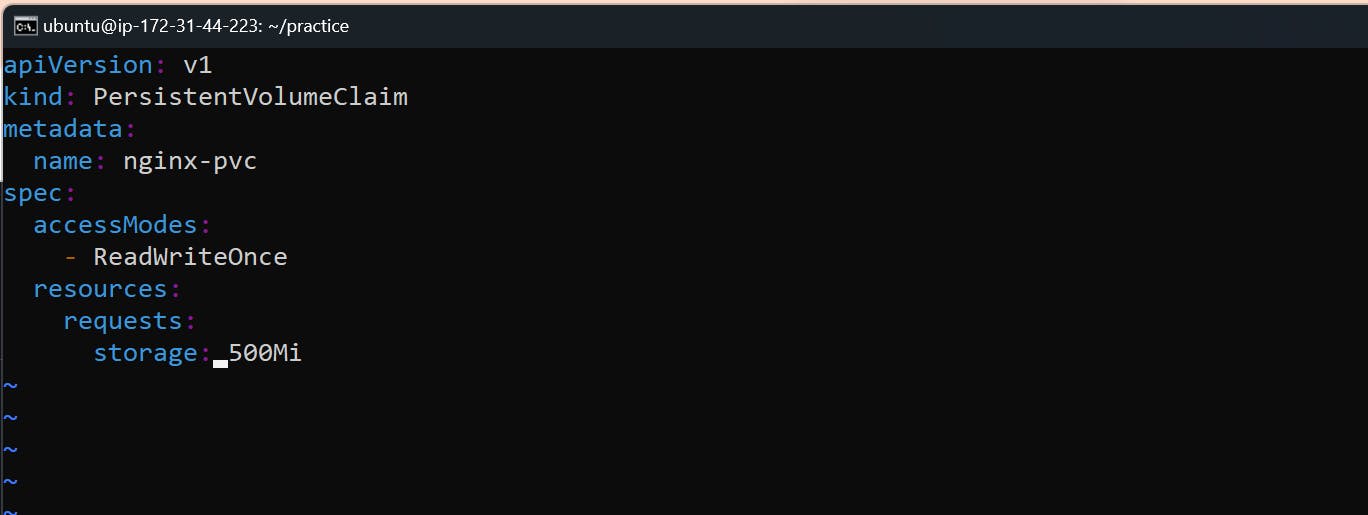In Kubernetes clusters, Persistent Volumes (PVs) provide a reliable storage management solution. Let's investigate how to incorporate persistent volumes into your deployments as we go into their realm.
Understanding Persistent Volumes in Kubernetes
A Persistent Volume (PV) in Kubernetes is a storage unit that is allocated within the cluster. It acts as a layer of abstraction for storage, separating storage provisioning from pod lifecycle control. Users submit requests for storage using Persistent Volume Claims (PVCs). A PV is referenced by the PVC and subsequently tied to a particular cluster node.
Task 1: Adding a Persistent Volume to Your Deployment
Step 1: Create a Persistent Volume
Start by creating a Persistent Volume YAML file named pv.yml:

This YAML file defines a Persistent Volume named nginx-pv with a storage capacity of 1Gi and ReadWriteOnce access mode. It is backed by storage located at /data/nginx on the node.
Apply the Persistent Volume to your cluster:
kubectl apply -f pv.yml
Step 2: Create a Persistent Volume Claim
Next, create a Persistent Volume Claim YAML file named pvc.yml:

This YAML file defines a Persistent Volume Claim named nginx-pvc requesting 500Mi of storage with ReadWriteOnce access mode.
Apply the Persistent Volume Claim to your cluster:
kubectl apply -f pvc.yml
Step 3: Update Deployment YAML File
Update your deployment.yml file to include the Persistent Volume Claim:

This updated YAML file adds a Persistent Volume Claim named nginx-pvc to the Deployment and mounts it to the container at /app.
Step 4: Apply the Updated Deployment
Apply the updated Deployment YAML file to your cluster:
kubectl apply -f deployment.yml
Step 5: Verify Persistent Volume Integration
Check the status of Pods and Persistent Volumes in your cluster:
kubectl get pods

kubectl get pv

Ensure that the Persistent Volume has been successfully added to your Deployment and is available for use by your nginx app.
By effectively managing Persistent Volumes in your deployments, you can ensure the resilience and reliability of your Kubernetes applications, even in the face of storage challenges. With these powerful storage management capabilities at your disposal, you can confidently scale and manage your applications with ease.
Follow for more:
Linkedin: https://www.linkedin.com/in/samarjeet-patil-921952251/
#cloud #AWS #k8s #deployment #pods #yaml #sevice #networking #services #loadbalancer #vloumes #claims